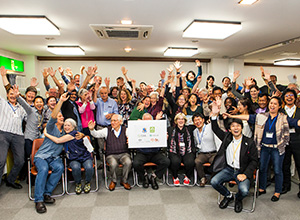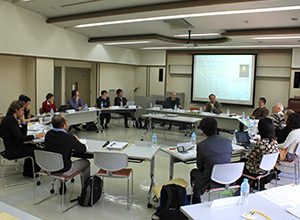Research
Most of our research areas, academic discourses and publications have so far been carried out in Japanese, covering a wide-range of issues such as war and peace, Japanese Constitution, mental health and suicide, education, dialogue, labor, etc. Here we only provide recent research areas, academic discourses and publications carried out in English.
Resilience and Subsidiarity Principle

This is the latest collaborative projects carried out by the Institute. When facing various social issues, we need resilience in one form or another to address them. However, the moral significance of the concept of resilience needs to be continuously called into question when dealing with the facts of a "good life" related to the systems of ecology, society and human psychology. What is commonly expected of us, as we deal with various world issues, is to build the social ethical foundation of such a concept of resilience. We believe that the "principle of subsidiarity" from the Catholic social doctrine can provide us important clues for such an endeavor. On the basis of this principle, we carry out our current research projects.
(Research Project Supervisor: Taro Okuda)
International Society and Ethics
This project focuses on the ethics of humanitarian intervention in the aftermath of the 9.11 world, where the "Responsibility to Protect" is interpreted as a "just" intervention of one or a group of countries to another sovereign country. The questionable intent and legitimacy of intervention raise moral dilemma on the function of States under its "Responsibility to Respect" in international system. The Ethical question on the so-called "just" intervention is relevant given the fact that there has been a shift on the way in which the notion of protection is interpreted: from the traditional method of "asylum" toward a more proactive approach of "intervention".
Governance and Environmental Crisis

Given that the world has been facing serious environmental crisis due to global warming and various man-made activities that harm the environment, the Institute initiated and organized a collaborative project involving renown scholars from within and outside Japan. The project aimed to explore the historical background that caused environmental crisis (proximate causes) in order to find out proper and concrete approaches for responses. The expectation was that the project would be able to fill the gap in the much academic thinking and current policy making regarding interlinked environmental crisis that tend to address and consider result symptoms, rather than root causes of the problem. As a result, it leads to interventions which are often short term and of limited effectiveness.